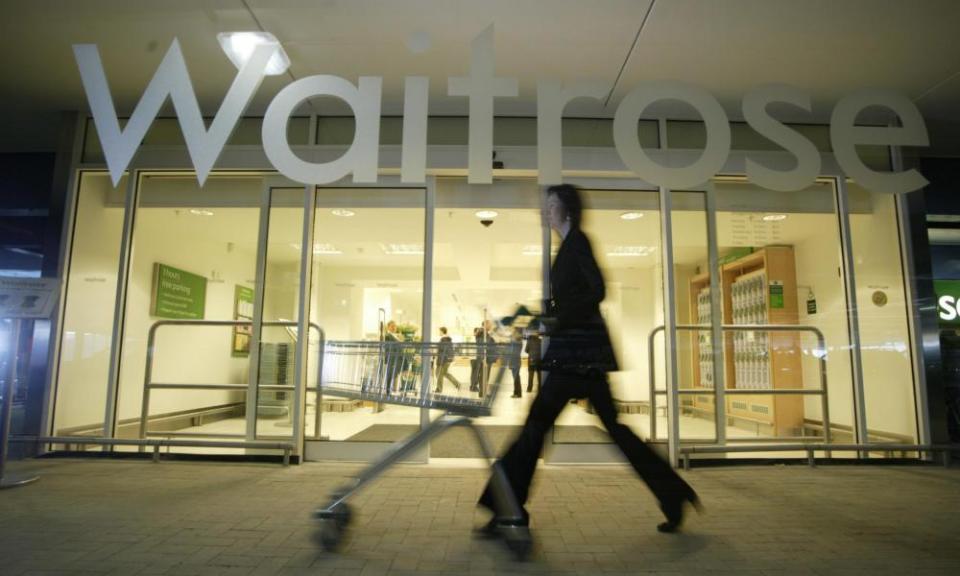Supermarkets urged to stop stalling over glitter sales ban

It is a familiar adornment of both Mother’s Day and Easter gifts, and brings dustings of sparkle to everything from children’s craft projects to greetings cards and even flowers and pot plants. But campaigners are calling for a ban on glitter, branding it an environmental scourge that contains damaging microplastics.
“Glitter might look lovely but, because it’s plastic, it sticks around long after the sparkle has gone – often in the stomachs of fish and birds,” said David Innes, from the campaign group 38 Degrees, which has launched a petition calling on environment secretary Michael Gove to outlaw the product. Innes cites a recent study showing that up to a third of fish caught in the North Sea contained microplastic particles – including glitter.
“Some major supermarkets are moving to ban these harmful microplastics, but the British public is clear; supermarkets should be moving faster to tackle plastic waste.”
The British public is clear; supermarkets should be moving faster to tackle plastic waste.
David Innes, 38 Degrees
Standard glitter is made from etched aluminium bonded to polyethylene terephthalate – a form of microplastic that can find its way into the oceans. It can pose a danger to people and animals. But despite concern building over recent years, UK supermarkets are accused of dragging their heels and failing to remove glitter from their seasonal ranges. They argue that it is difficult to revamp products in the short term as they are ordered more than a year in advance.
“It falls to retailers to support their customers to reduce their use of single-use plastics and, while we all need a little sparkle in our lives, glitter, which is known to be harmful to the environment, must surely be one of the easiest plastics to cut out,” said Trewin Restorick of the environmental campaign group Hubbub.
“It’s understandable that supermarkets have long lead times on seasonal items, so they should be looking now at what they can do to bring forward long-term pledges on glitter.”
The discount chain Aldi said last week it was scrapping plastic glitter from this year’s Halloween range – so no more sparkly fake pumpkins – as well as from this year’s Christmas cards and wrapping paper. The move – in all 825 UK and 130 Ireland stores – was part of a pledge to remove non-biodegradable glitter from all products by the end of 2020, it said.
It came after Waitrose pledged in December to remove glitter from all its own-brand lines by the end of 2020, with a focus on its Christmas lines of crackers, gift wrap and cards. That means glitter content will reduce by Christmas this year, with no glitter by the festive season next year.
And following a successful trial last year of a biodegradable glitter – Deco Bioglitter – on its sparkling chrysanthemum gift bags, Marks & Spencer has extended its use across its flowers and plants.

Waitrose pledged in December to remove glitter from all of its own-brand lines by 2020.Photograph: Waitrose/PA
The supermarkets are acting amid wider moves in society, with the BBC show Strictly Come Dancing banning the use of traditional glitter last year and growing numbers of nursery schools and music festivals also axing it.
But Sophie Awdry, founder of Eco Glitter Fun – a biodegradable cosmetic-grade glitter sold in plastic-free packaging – said: “Unfortunately, until large retailers switch all glitter products from plastic to biodegradable, consumers will continue to be confused and unsure of what to buy. Biodegradable glitter is more expensive than plastic, however, once it is mainstream, the cost will reduce.”
Retailer Hobbycraft has also launched biodegradable alternatives, including a craft bio-glitter for children’s use. “We take our position as a responsible retailer seriously and we are always looking to source more sustainable ways for our customers to craft,” said a spokesperson. “Our aim is to be completely free of non-biodegradable glitter by 2023.”
In beauty care, Lush has introduced a plastic-free sparkle, made from synthetic fluorphlogopite (also referred to as synthetic mica), which is adding dazzle to its bath bombs, shower gels and cosmetics.

 Yahoo News
Yahoo News 
